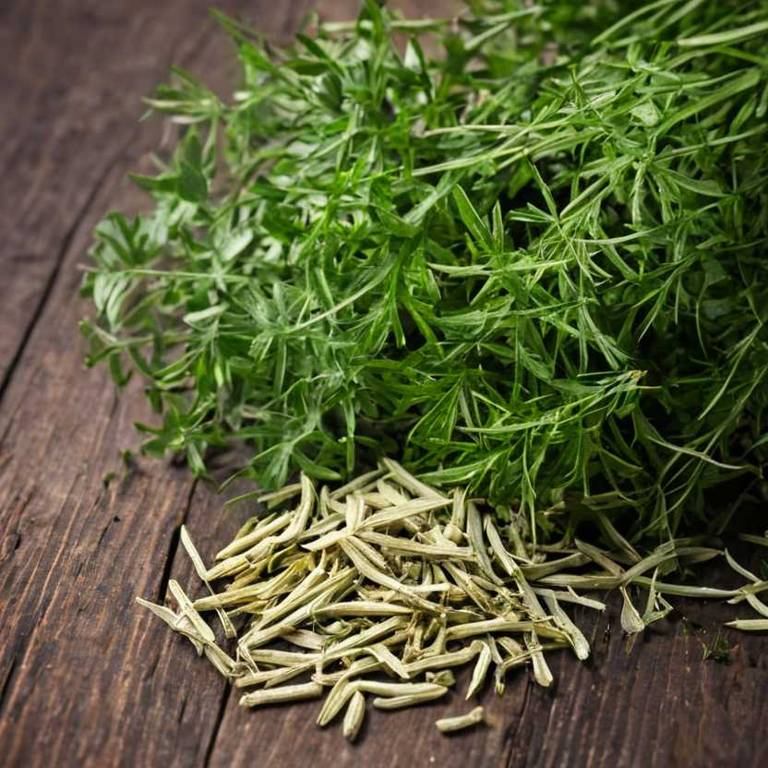Dill (Anethum graveolens)
Dill (Anethum graveolens) is a member of the Apiaceae family, native to South Asia, Middle East, and Central Asia. Traditionally, its seeds, fruits, and leaves have been used for infusions, decoctions, and culinary uses.
This herb is particularly valued for its carminative, antispasmodic, and anti-inflammatory actions, and has a long history of use in ayurvedic medicine, european herbal medicine, and mediterranean herbal traditions.

Quick Facts / Key Information
| Common Name | Dill |
|---|---|
| Scientific Name | Anethum graveolens |
| Plant Family | Apiaceae |
| Genus | Anethum |
| Species | graveolens |
| Native Range | South Asia, Middle East, Central Asia |
| Plant Parts Used | Seeds, Fruits, Leaves |
| Primary Medicinal Actions | Carminative, Antispasmodic, Anti-Inflammatory |
| Primary Traditional Systems | Ayurvedic Medicine, European Herbal Medicine, Mediterranean Herbal Traditions |
| Historical Preparation Methods | Infusion, Decoction, Culinary Use |
Botanical Identity
- Scientific Name
- Anethum graveolens
- Common Name
- Dill
- Synonyms / Alternative Names
- Aniseed, Common Dill, Fennel
- Plant Family
- Apiaceae
- Genus
- Anethum
Botanical Description
- Growth Habit
- Annual herbaceous plant.
- Height
- It typically grows to a height of 30 to 100 centimeters.
- Leaves
- Bipinnate leaves with dark green upper surface and lighter green lower surface, bearing prominent stomatal bands along the midrib.
- Flowers
- Small, yellow flowers arranged in umbels, actinomorphic, with four花瓣 and a single pistil surrounded by four stamens.
- Stems
- Cylindrical, hollow, ridged, aromatic, herbaceous, branching at nodes, opposite, glabrous, terete, erect.
Traditional Uses / Historical Use
Traditional Systems
- Ayurvedic Medicine
- European Herbal Medicine
- Mediterranean Herbal Traditions
- Traditional Chinese Medicine
Historical Preparation Methods
- Infusion
- Decoction
- Culinary Use
- Oil Infusion
Medicinal Actions
- Carminative
- Traditionally described as a mild carminative, within digestive system contexts.
- Antispasmodic
- In herbal literature, noted as a moderate antispasmodic, in spasm-related situations.
- Anti-inflammatory
- Historically regarded as a gentle anti-inflammatory, in inflammation-focused discussions.
- Expectorant
- As described in traditional systems, a cooling expectorant, in chest-related herbal contexts.
Active Compounds
- Essential Oil
- A mixture of naturally occurring compounds responsible for plant aroma.
- Coumarin
- Naturally occurring lactone compounds distributed across various plant tissues.
- Phenolic Acid
- Naturally occurring phenolic compounds present in many plant species.
- Flavonoid
- A widely occurring class of plant polyphenols found in leaves, flowers, and fruits.
Modern Research Overview
This section is reserved for future summaries of scientific research related to this plant. As additional verified sources are reviewed, relevant study information will be added here.
Safety & Contraindications
- General Precautions
- The use of this herb may warrant general caution in certain situations.
- Contraindications
- There is insufficient evidence to determine specific contraindications related to this herb.
- Allergies
- Information regarding allergic responses to this herb is limited.
- Drug Interactions
- There is insufficient evidence to determine whether this herb interacts with pharmaceutical drugs.
- Toxicity
- The toxicity profile of this herb has not been clearly established.
- Pregnancy & Breastfeeding
- Safety during pregnancy and breastfeeding has not been well documented.
Preparation & Usage Methods
- Infusion
- Plant material is steeped in hot water to extract water-soluble compounds.
- Decoction
- Decoctions are made by heating plant material in water for an extended time.
- Poultice
- Poultices involve external application of prepared plant matter.
- Culinary Use
- Leaves, flowers, or roots are used as ingredients in culinary preparations.
- Powder
- Powdered preparations use finely milled plant parts.
Growing, Harvesting & Storage
Growing / Cultivation
- Soil
- Prefers loamy soil with well-drained conditions. Typically grows best in organically rich soils.
- Sunlight
- Thrives in full sun. Tolerates full sun to partial shade.
- Watering
- Prefers well-balanced moisture levels. Tolerates periodic dry conditions.
Medical Disclaimer
The information provided on this page is for educational and informational purposes only. It is not intended to diagnose, treat, cure, or prevent any medical condition. Always consult a qualified healthcare professional before using any herb for medicinal purposes.